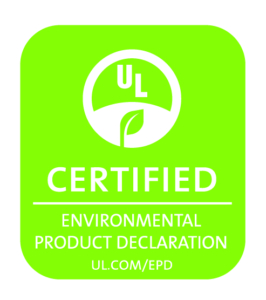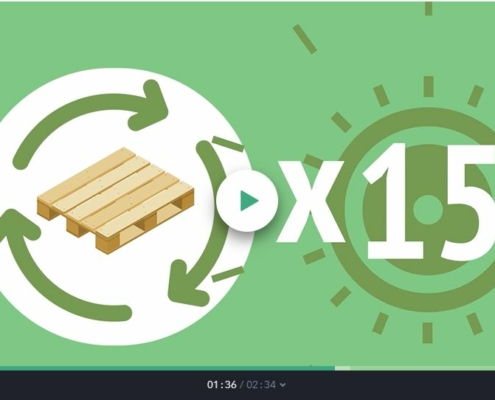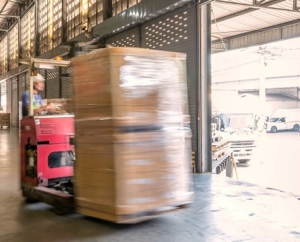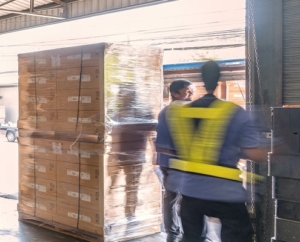Environmental Product Declaration for Wooden Pallets
Environmental Product Declarations (EPD’s) are fast becoming the worldwide standard for comparing materials and products for their environmental impact. To develop usable EPD’s for the wooden pallet, the Pallet Foundation funded a research project with the USDA Forest Products Lab.
In 2020, the National Wooden Pallet & Container Association (NWPCA) and the Pallet Foundation presented an Environmental Product Declaration (EPD) for U.S. wooden pallets that reinforces the environmental attributes of wooden pallets for the supply chain and procurement industries. This document, certified by UL and produced in conjunction with Forest Products Lab, the research wing of the US Forest Service, is the first of its kind for a product in the distribution packaging space. This declaration speaks to the quantitative impact that wooden pallets have on the environment beyond their reusable, recyclable and biodegradable qualities.
When considering its life cycle, wooden pallets can have a potential net carbon positive impact. Through the unique properties of wood, carbon offsets may be achieved by the reuse of pallet materials and substituting wood fuel from pallet waste (e.g., unusable pallets) for natural gas.
EPDs provide consumers and professionals with transparent and product-specific environmental information through an independent validation from a third-party organization. A critical component of the wooden pallet EPD study is a life cycle assessment (LCA), measuring the impacts of a wooden pallet’s product stages of gathering, transporting and manufacturing raw materials, the use and repair of the pallet, as well as its end of life usage. When considering its life cycle, wooden pallets can have a potential net carbon positive impact. Through the unique properties of wood, carbon offsets may be achieved by the reuse of pallet materials and substituting wood fuel from pallet waste (e.g., unusable pallets) for natural gas.
Watch this video explaining the EPD for Wooden Pallets.
Explaining the EPD for Wooden Pallets
“The findings of the life cycle assessment and subsequent EPD are an affirmation of our belief that wooden pallets are truly nature’s packaging,” said Bob Wenner, President of Pallet Service Corporation. “On top of UL’s Product Category Rules (PCRs) for wooden pallets published last year, this EPD establishes wooden pallets as a leader of environmental stewardship and provides a tool for pallet users to measure their own impacts.”
UL’s PCR was the first of its kind for shipping materials and is used to standardize how environmental impacts are determined. This research also complements an independent study published earlier this year at Pennsylvania State University that indicates wooden pallets have a significantly lower carbon footprint than plastic pallets during their life cycle.
“UL applauds the efforts of NWPCA and the Pallet Foundation to develop a PCR and now issue an EPD for wooden pallets to better understand the environmental impact they have,” said Alberto Uggetti, vice president and general manager of UL’s environment and sustainability division. “The reusable nature of wooden pallets makes them a more circular, sustainable form of reusable packaging, and with this EPD, manufacturers will be able to communicate the impacts of their products with more transparency and confidence.”
Funded in part by the Pallet Foundation, this EPD solidifies wooden pallets as the clear sustainable choice for supply chains across industries. “This industry-wide wood pallet Environmental Product Declaration (EPD) is not only a first in the supply chain, it is a major step toward scientifically validating the benefits of wood pallets,” said Brent McClendon, President and CEO of NWPCA. “Beyond anecdotal evidence, this research supports the sustainability of wood. The results are something that all wood pallet companies can trumpet to their customer base as a new tool in their toolbelt.”
Product Category Rules
In 2019, UL announced the publication of the first-ever Product Category Rules (PCR) for wooden pallets. The PCR may be used to benchmark the environmental impacts of wooden pallets, and sets a new precedent for life cycle assessments for pallets made from other materials.
PCRs ensure that products of the same function are evaluated consistently for a meaningful comparison of results via EPDs.
“Our members in the wooden packaging industry are dedicated to environmental issues. Using this PCR for wooden pallets, we can better understand and communicate the environmental attributes of wooden pallets over their lifecycle.”
Jordan Piland, Pallet Foundation Vice Chair
Project Links & Contacts
The Pallet Foundation funds projects, such as the environmental product declaration, and life cycle assessment survey, which benefit the wood packaging industry. This research was conducted in collaboration with the NWPCA and the U.S. Forest Service, Forest Products Lab; Certified by UL.

- EPD for Wooden Pallets – full report
- EPD Transparency Summary
- Life Cycle Assessment
- Product Category Rule Guidance for Wooden Pallets
- Press Release (PR Newswire, 11/30/2020)
The respective project leads and researchers are:
- Richard Bergman, Lead Researcher, US Forest Products Lab
- Brad Gething, PhD, NWPCA Director of Science and Technology Integration
- Sevda Alanya-Rosenbaum, Researcher US Forest Products Lab
UL Logo Usage
Because this is an industry-wide EPD, companies that promote the EPD mark and program should be clear that their products are part of the industry-wide EPD and not their specific products. UL requires that all uses of the mark be sent to ULEmarketing@ul.com for approval so they can confirm that it’s used clearly and appropriately. Click here for guidelines on mark use which outlines where and how the mark can be used.
NWPCA Marketing & Member Examples
We’ll share information on how NWPCA Members are using the EPD-LCA documents. Please send any webpage links or marketing documents to Annette Ferri, VP, Communications, and we’ll provide the links below:
- “The Circular Economy of Wooden Pallets” flyer
- Kamps Pallets: What the EPD for U.S. Wooden Pallets Means for You
- Pallet Consultants: Wood Pallets Got an Environmental Declaration, Here’s What it Means
- Rose Pallets: Wood Pallets Receive EPD Certification
Acknowledgment
We would like to thank the hundreds of industry members who volunteered to take part in the survey, as well as the NWPCA Science and Technology Advisory Council, who played an integral role in developing the Life Cycle Assessment scope and parameters
This research was funded in part by the NWPCA, the Pallet Foundation and the USDA Forest Service. The ongoing support of impactful research related to the wood pallet industry is greatly appreciated.





 Photography: Amy Coppersmith 2018
Photography: Amy Coppersmith 2018



























